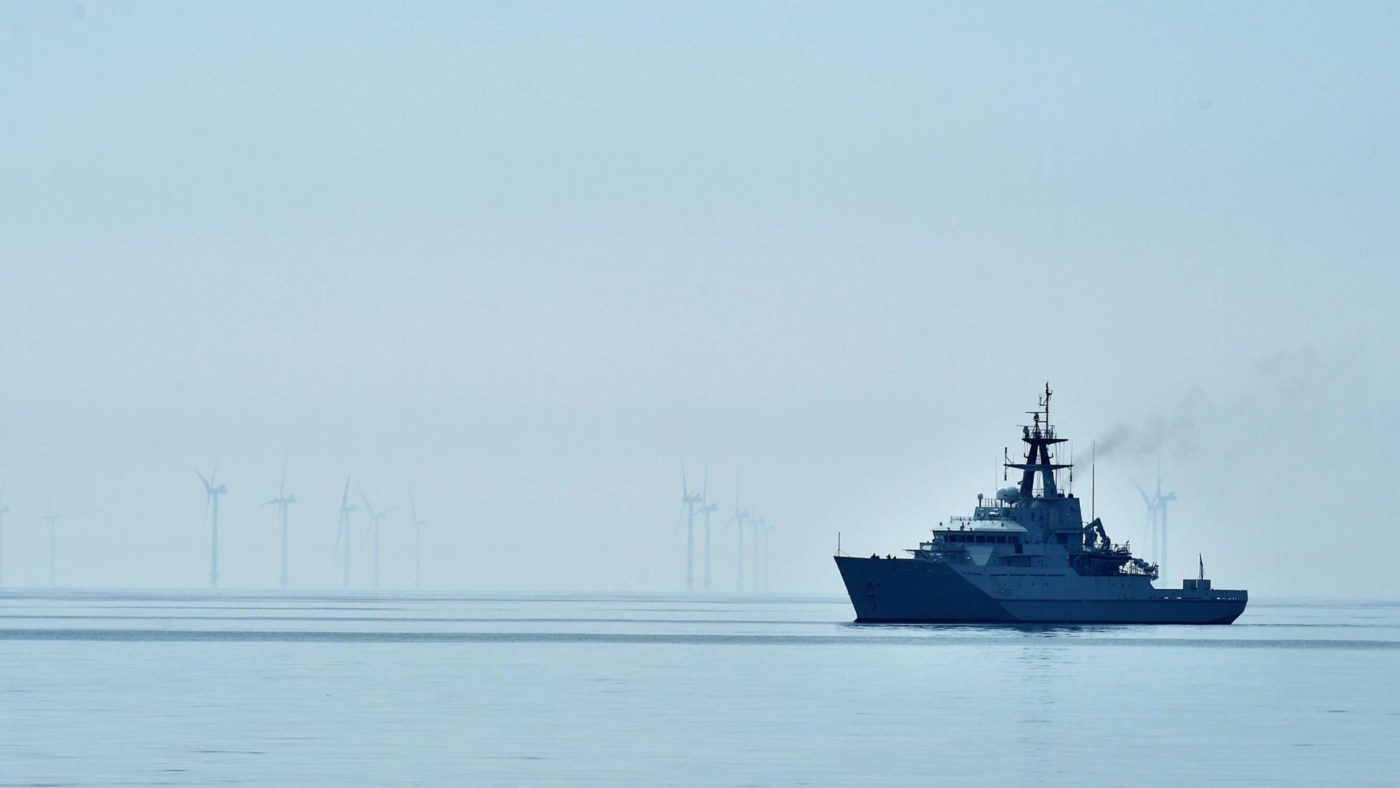The pantomime around the negotiations with the European Union has got slightly farcical. One paper reports that Conservative MPs are being primed for a deal, only for another to print a hasty warning that the two sides are still miles apart. Jacob Rees-Mogg explains that Parliament could theoretically ratify any agreement in days, if not less, which puts the string of missed deadlines in perspective.
Nonetheless, the phantom of a ‘no deal’ exit and the posturing of the two sides has not been without its illuminating moments, and none have been so ridiculous as the hue and cry over “gunboats”.
If you’ve missed this – and good for you, if so – here’s the précis. Emmanuel Macron is deeply concerned about the prospect of French fishermen losing access to British territorial waters after Brexit. So much so that he suggested they would simply continue to fish them, even if the UK left the EU without an agreement in place. The fishermen themselves have threatened to blockade British ships at Calais if they don’t get what they want.
The Government, understandably enough, said that if this happened it would deploy the Royal Navy to prevent illegal fishing.
At which point, everyone kicked off. Guy Verhofstadt summed up the tone of the response on Twitter:
Gunboats to protect fish!
Is this really what people voted for? We are your allies and partners, not your enemies! https://t.co/ohv7cWi9gy
— Guy Verhofstadt (@guyverhofstadt) December 12, 2020
But the tone was echoed by plenty of British commentators. Deborah Meaden spluttered that “this is not my country”, whilst even Tom Tugendhat, a high-profile Tory MP, waded in with a list of more high-status uses for the Navy than defending Britain’s territorial waters.
Of course, we already have ships protecting our waters. The Navy is having to step in because the normal fleet has apparently been shrunk from 17 vessels to just four, but even then they’re apparently going to be deploying “inshore patrol boats” normally used by cadets. Forget ‘gunboats’ – most of them aren’t even armed.
But even notwithstanding that, it strikes me that not enough people have taken the time to point out just how weird a response this is – and how badly it undermines the good-faith case for the European Union.
The idea of the EU as a straightforwardly beneficent institution has always been a bit of a fiction, and fishing is no exception. It was only added to the ambit of the then-European Economic Community by the existing members just before a number of states with large territorial waters (including Britain) joined. That transparently mercenary move has always seemed much more the true spirit of the European enterprise than the official rhetoric.
Nonetheless, that doesn’t automatically make the EU system a bad thing. Those who credit it with the lack of warfare between its members are not wrong that there are worse things in life than remote and inefficient government, and that war is probably one of them. The spectre of ‘gunboats’, as fishery protection vessels are now being called, is grist to their mill.
But gunboats (and indeed, war) are not always or even inherently illegitimate. It depends why you’re deploying them, whether or not you’re the aggressor, and whether or not your cause is just. And in the hypothetical scenario Verhofstadt et al are so riled up about, the UK is not the aggressor. The problem there is not British ‘gunboats’: it’s French piracy.
It’s probably just an artefact of how polarised our politics has become that this reflexive blaming of Britain, and the problematising of a defensive response instead of an aggressive act – has been so little remarked, just as many who deride Boris Johnson for being prepared to torpedo a deal over fish don’t seem to think Macron’s similar willingness makes him similarly ridiculous.
But if you step back from it, it is a really strange position to take. After all the shroud-waving about the Northern Irish provisions of the UK Internal Market Bill, the Government is now being attacked for its intention to uphold international law. The idea really seems to be that we potentially allow the French to illegally fish British waters, hurting our fishing communities and undermining our negotiators, because stopping them would be a bit cringe.
Not only is this an absurdly childish basis on which to conduct state policy, but if the threat of illegal fishing and shipping blockades is accurate then that has to affect any moral assessment of the EU’s trading system. Each may be an alternative to conflict, but there is a world of difference between a system of mediation between genuine partners and a system which merely codifies and prettifies the de facto rule of the strongest members.
There are legitimate questions to be asked about the viability of the Government’s plans. The last time the Royal Navy was deployed in a proper fisheries-protection operation – the so-called Cod Wars – it lost, despite having access to far more ships than today. There is also the question of whether, in our insane devolutionary set-up, the devolved administrations could and would block operations in Welsh and Scottish waters.
But that doesn’t make complaining about the mere idea of defending British waters from illegal foreign fishing anything else but utterly absurd. Stop it, please.
Click here to subscribe to our daily briefing – the best pieces from CapX and across the web.
CapX depends on the generosity of its readers. If you value what we do, please consider making a donation.


